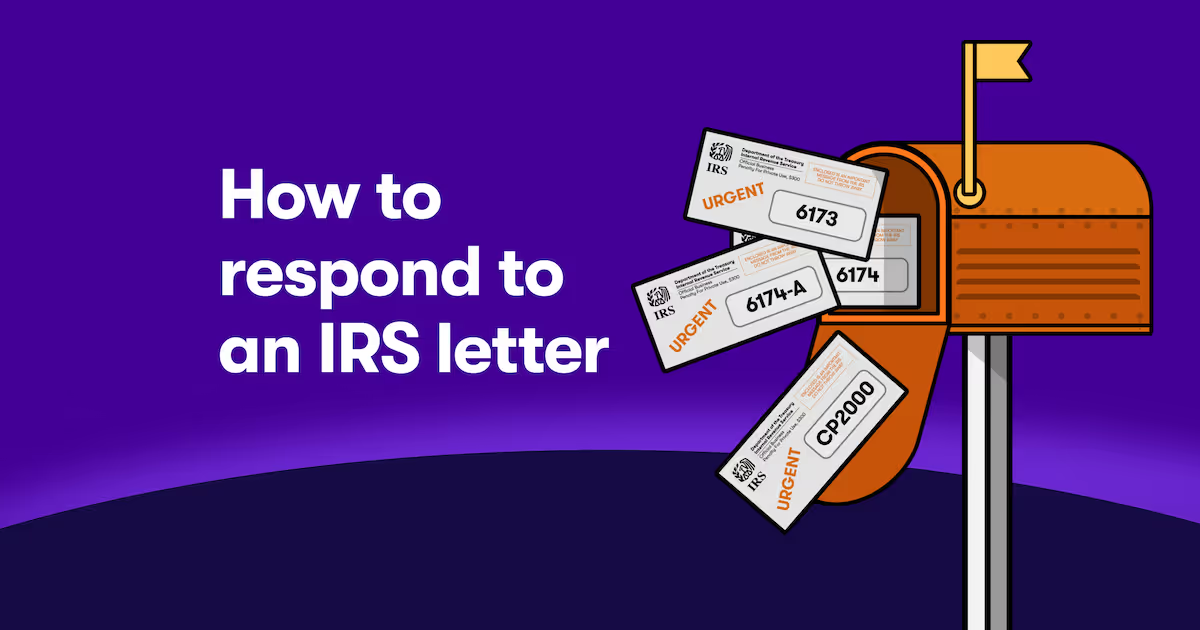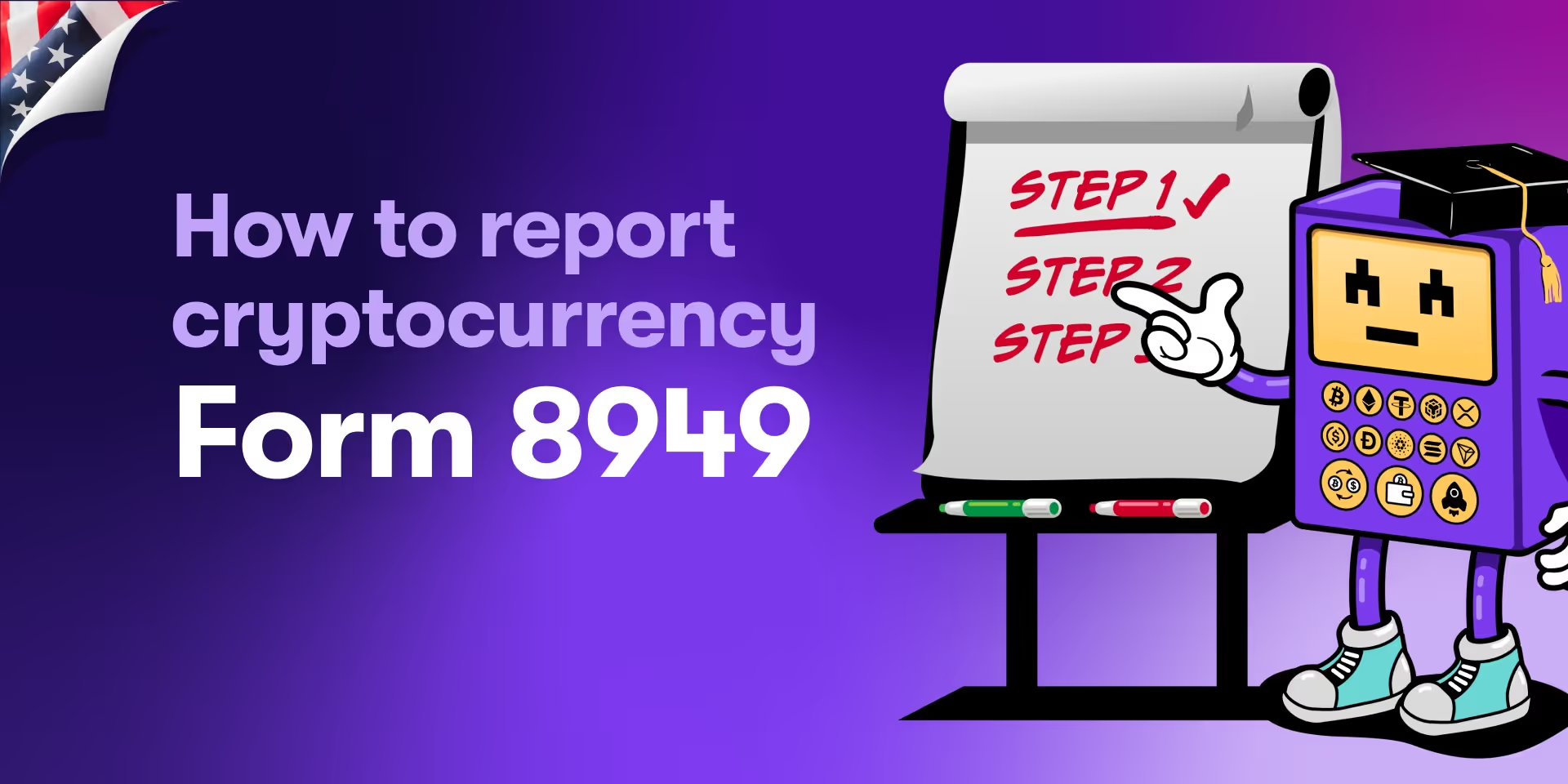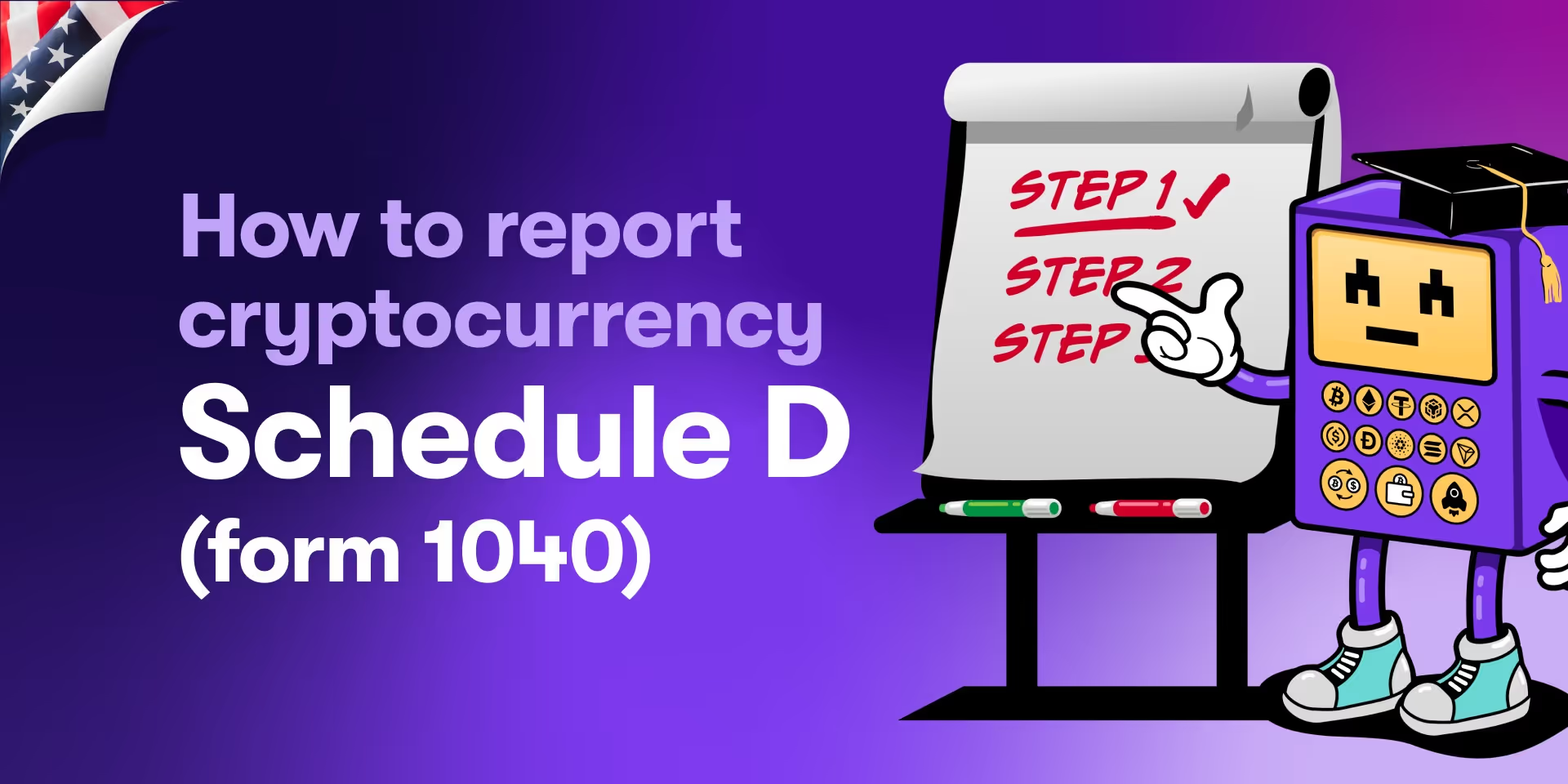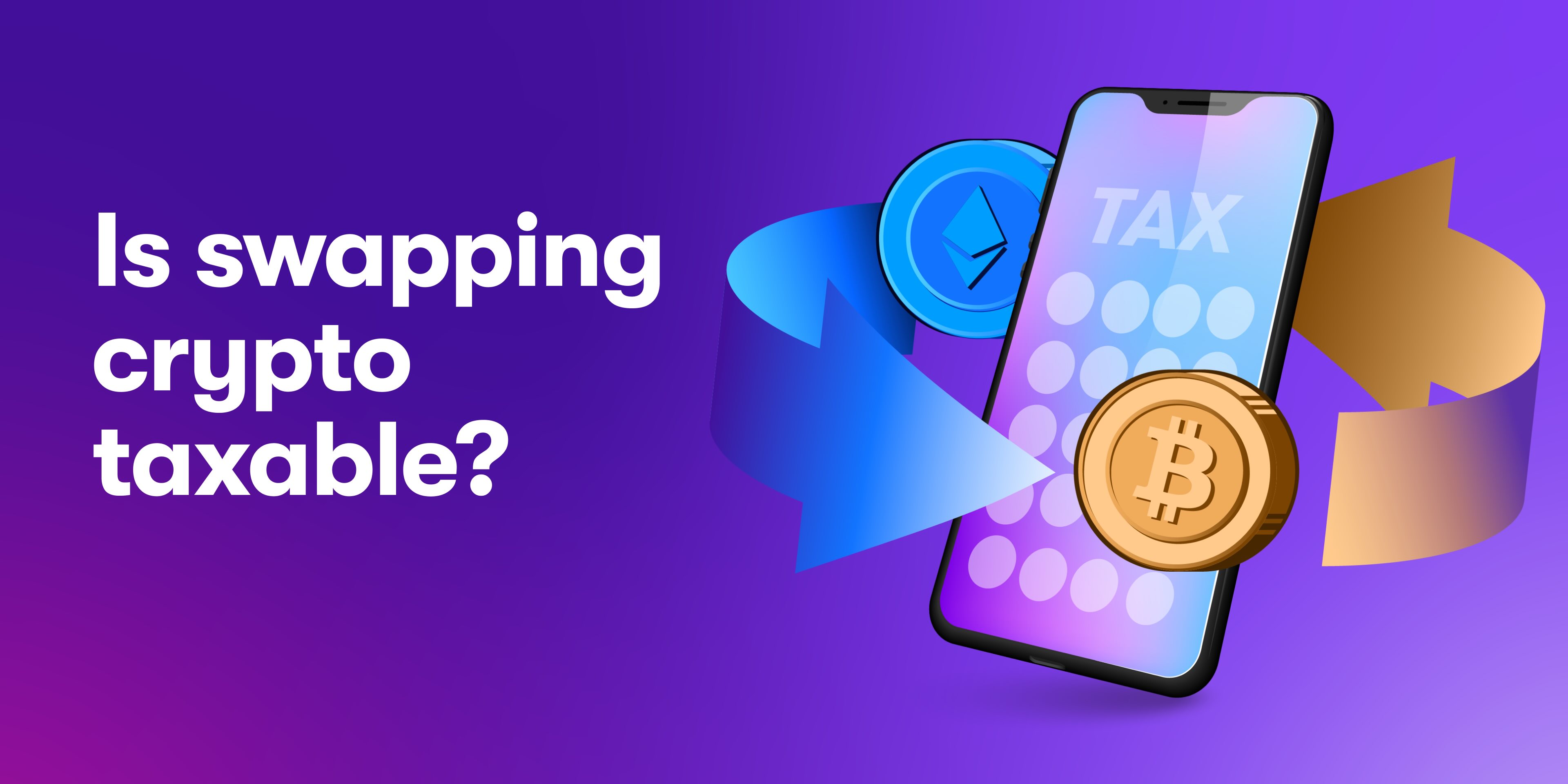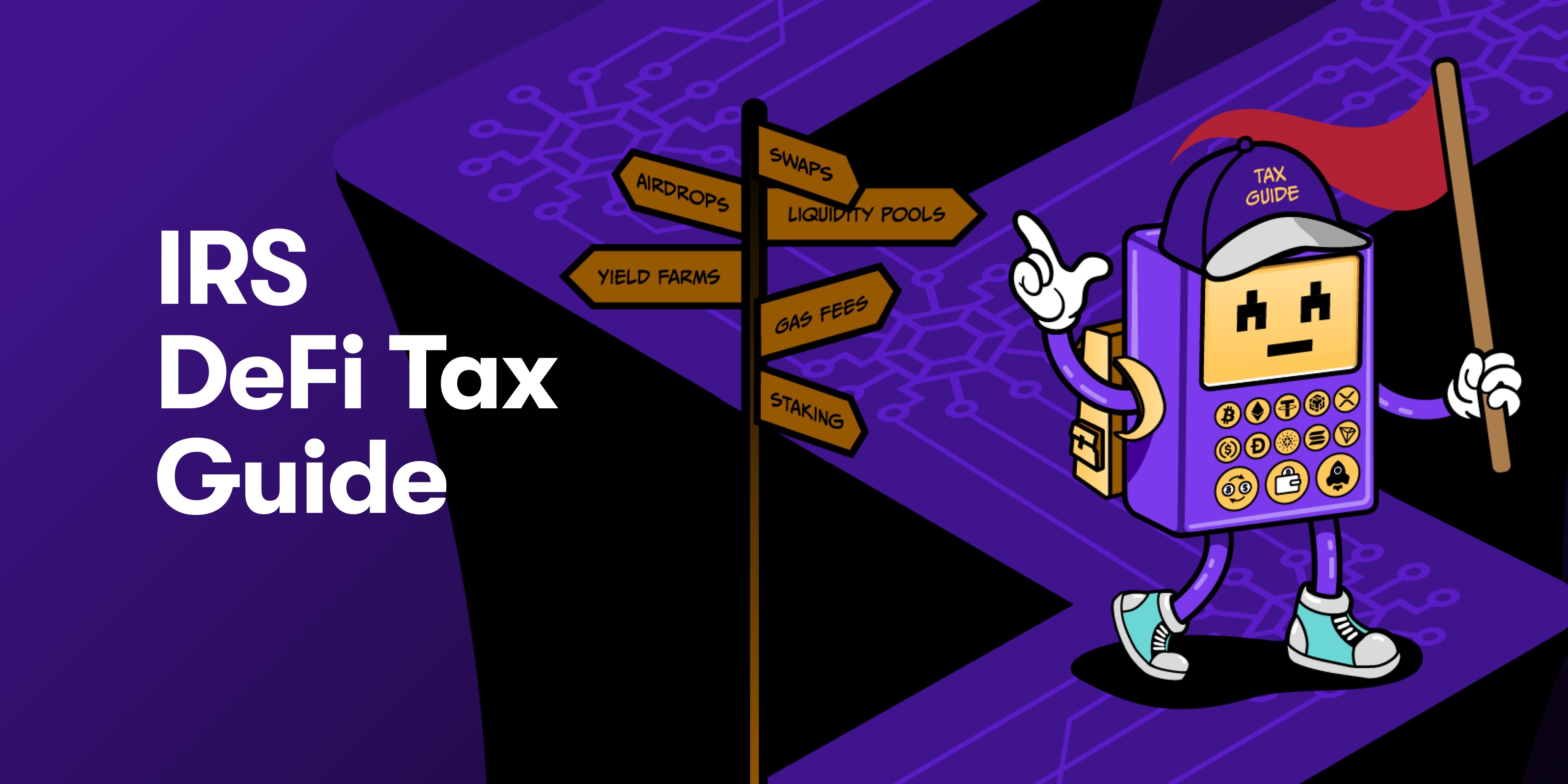Navigating the world of cryptocurrency taxes can be complex. If you've received a letter from the IRS regarding your crypto transactions, it's natural to feel a sense of anxiety. IRS Letters 6174, 6174-A, 6173, and CP2000 look scary at first, but there’s no need to panic – these are standard letters that hundreds of thousands of Americans receive each year.
This guide is designed to demystify these communications, explaining what each letter means, what is required of you, and how to take the correct course of action.
Why Did I Get a Letter? The IRS's Virtual Currency Compliance Campaign
The IRS is aware of the rapid growth in cryptocurrency adoption and is actively working to close the "tax gap,” the difference between taxes owed and taxes paid. As part of its Virtual Currency Compliance Campaign, the IRS is increasing its enforcement efforts to ensure taxpayers are accurately reporting their crypto gains, income, and trades. These letters are a key tool in this initiative, targeting taxpayers who may have failed to report or have misreported their transactions.
The IRS obtains information about taxpayer's crypto activities from various sources, including the new 1099-DA form issued by exchanges like Coinbase, Kraken, and Gemini, and through "John Doe" summonses that require exchanges to provide user data.
{{irs-letters-cta-dashboard}}
Detailed Breakdown of Each IRS Notice And How To Respond
Letter 6174: Informational Crypto Letter
This is the mildest of the crypto-related notices. It serves as a general reminder of your duty to report any cryptocurrency transactions.
What to do:
- Review your past tax filings to ensure all crypto activity was correctly reported.
- If everything is accurate, no further action is needed.
- If you find any discrepancies or omissions, you should file an amended return using Form 1040-X.
Letter 6174-A: Warning About Unreported Crypto
This letter is a step up from the 6174. It signals that the IRS has information indicating you have or had crypto, and they suspect you may have unreported transactions.
What to do:
- Carefully review your cryptocurrency transaction records and compare them against your submitted tax returns.
- If you've missed any taxable events, file an amended return using Form 1040-X.
Letter 6173: Compliance Enforcement Letter
Receiving a Letter 6173 is a serious matter. It means the IRS has strong evidence to believe you have not complied with tax laws regarding cryptocurrency and requires a response.
What to do:
- Immediately note the response deadline, which is typically 30 days. Missing this deadline is critical and can lead to further enforcement action.
- If you believe your return is accurate, you must send a signed confirmation to the IRS explaining your position.
- If your return is incorrect or you failed to file, you must file a corrected or delinquent return, including all necessary crypto forms like Form 8949 and Schedule D.
- Ignoring this letter is not an option and could lead to a formal audit.
CP2000 Notice: Explanation of Proposed Changes
A CP2000 notice is not exclusive to crypto, but it is frequently issued to crypto investors. It means there is a discrepancy between the income and transaction information reported to the IRS by third parties (like crypto exchanges) and the information you reported on your tax return.
What to do if you get a CP2000 for crypto:
- Pay close attention to the 30-day response deadline.
- Carefully review the proposed changes and compare them with your records to determine if the IRS is correct.
- If you agree with the notice, sign the response form and return it. You can pay the proposed amount to stop further interest accrual.
- If you disagree, do not sign the agreement. Instead, send a detailed explanation of why you disagree, along with supporting documentation. You should also request an appeal in your response to protect your rights.
- Consider using a crypto tax tool like Crypto Tax Calculator or consulting a CPA or Attorney to recalculate your gains and losses accurately.
Read more: How to respond to a CP-2000 Notice
What Happens If I Ignore an IRS Notice?
Ignoring an IRS letter, especially a 6173 or a CP2000, can lead to serious consequences. The IRS may:
- Send follow-up notices with increasing urgency.
- Initiate a formal tax audit.
- Assess penalties for failure to file or failure to pay, which can be substantial.
- In cases of willful tax evasion, there can be significant fines and even criminal investigation.
How Crypto Tax Calculator can help you respond to your IRS letter
Crypto Tax Calculator is designed to help everyday crypto investors accurately report their tax to the IRS. It has been built in consultation with industry experts and meets IRS reporting requirements. You can use our software to accurately calculate your crypto tax – across all your wallets and exchanges – and provide the IRS with the information they need.
Once you connect your accounts and analyse your transactions, you can download your results in 10+ specific report formats which include IRS forms 8949, 1040. There is support for TurboTax as well, which makes regular tax time reporting straight forward.
A single plan gives you access to all tax years – which means you don't have to pay extra to back-audit and report your tax for previous years where the IRS has asked for further information.
Our customer support team is highly rated on TrustPilot, and won't hesitate to walk you through the platform to provide you with the help you need to get on top of your taxes, and get the IRS off you're back.
When to Hire a Professional
While you can handle some of these notices on your own, it is highly recommended to seek professional help in certain situations. Consider hiring a CPA or a Tax Attorney specializing in cryptocurrency if:
- You receive a Letter 6173 or a CP2000 notice.
- The amount of tax the IRS claims you owe is significant.
- Your transactions are complex, involving DeFi, staking, NFTs, or a high volume of trades.
- You are facing a formal IRS audit.
- You are unsure how to accurately calculate your crypto gains and losses.
Tips to Stay Compliant
- Answer "Yes" to the virtual currency question on Form 1040 if you have engaged in any transactions with digital assets.
- Keep detailed records of all your cryptocurrency transactions, including dates, amounts, and the fair market value in U.S. dollars at the time of the transaction.
- Use trusted crypto tax software like Crypto Tax Calculator to help aggregate your transactions and calculate your gains and losses.
- Report all taxable events, including selling crypto for cash, trading crypto for crypto, and using crypto to buy goods or services.
- Amend your return quickly if you discover an error.
Sources
- Understanding Your CP2000 Series Notice, IRS
- Official sample of Letter 6174-A, IRS
- IRS provides additional transition relief for brokers required to file Form 1099-DA on digital-asset sales, IRS
- About Form 1099-DA, Digital Asset Proceeds From Broker Transactions
- Voluntary compliance letters, IRS
{{get-started-free-with-trustpilot}}
The information provided on this website is general in nature and is not tax, accounting or legal advice. It has been prepared without taking into account your objectives, financial situation or needs. Before acting on this information, you should consider the appropriateness of the information having regard to your own objectives, financial situation and needs and seek professional advice. Crypto Tax Calculator disclaims all and any guarantees, undertakings and warranties, expressed or implied, and is not liable for any loss or damage whatsoever (including human or computer error, negligent or otherwise, or incidental or Consequential Loss or damage) arising out of, or in connection with, any use or reliance on the information or advice in this website. The user must accept sole responsibility associated with the use of the material on this site, irrespective of the purpose for which such use or results are applied. The information in this website is no substitute for specialist advice.
FAQ
Can the IRS track my cryptocurrency?
Yes. The IRS can and does track cryptocurrency transactions. They use data from exchanges that are required to report user information, as well as sophisticated blockchain analysis software to trace transactions on public ledgers.
Do I have to pay taxes on crypto if I didn’t cash out to fiat?
Yes. Trading one cryptocurrency for another (ie, crypto swaps) is a taxable event. The IRS treats cryptocurrency as property, so exchanging it is considered a sale of the first crypto, and you must report any capital gain or loss.
How far back can the IRS audit crypto taxes?
Typically, the IRS can audit returns from the last three years. However, if they find a "substantial error" (usually underreporting income by 25% or more), they can extend the look-back period to six years. There is no statute of limitations for fraudulent returns.
How far back can the IRS audit crypto taxes?
Typically, the IRS can audit returns from the last three years. However, if they find a "substantial error" (usually underreporting income by 25% or more), they can extend the look-back period to six years. There is no statute of limitations for fraudulent returns.
What if I agree with the CP2000 notice?
If you agree with the proposed changes, you should sign the response form and send it back to the IRS. You can include payment with the form or wait for an official bill.
What if I disagree with the CP2000 notice?
If you disagree, you should not sign the agreement form. Instead, you must send a written statement explaining why you disagree, along with copies of any supporting documents that prove your position. It is also wise to request an appeal in your response.
Is there a crypto tax amnesty program?
While there is no specific "crypto tax amnesty" program, taxpayers who have willfully failed to report can use the IRS's Voluntary Disclosure Program to come into compliance and potentially avoid criminal prosecution. For non-willful errors, options like filing an amended or delinquent return are available.






































































































































































